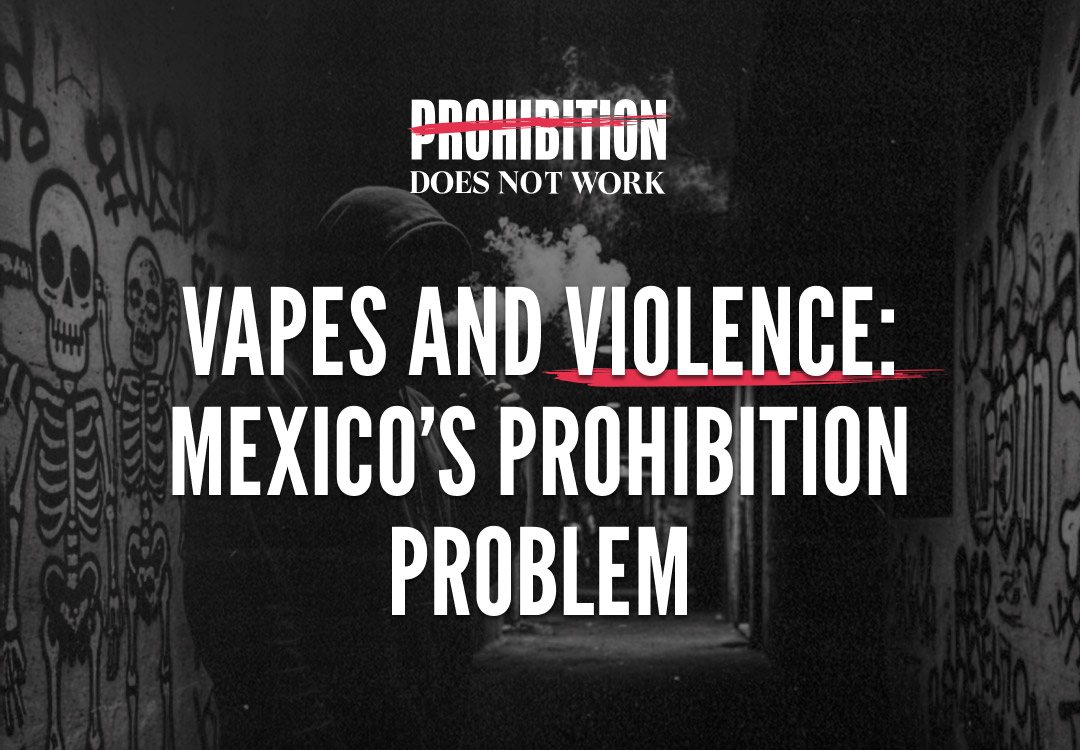Vapes & Violence: Mexico's Prohibition Problem
Washington, DC. October 23, 2025. A new country report released today by Prohibition Does Not Work (PDNW) network reveals that Mexico’s total prohibition on vaping products has backfired driving millions of consumers to the black market, fueling criminal activity, and depriving smokers of safer alternatives proven to save lives.
“Mexico’s experience demonstrates a clear truth: banning safer alternatives doesn’t eliminate demand — it just hands the market to criminals,” said Tim Andrews, Director of Consumer Issues for the Tholos Foundation and PDNW partner. “By driving adult consumers underground, the government has lost control of product safety, taxation, and youth access.”
According to the report, Mexico now faces:
- An unregulated black market supplying an estimated 1.3–1.8 million users with illegal vaping products.
- Rising criminal and drug cartel involvement, including links to organized smuggling networks exploiting border loopholes.
- A widening health gap, as millions of smokers are denied access to regulated reduced-risk alternatives available in other countries.
- Lost tax revenue and enforcement costs that far outweigh any public health gains.
The PDNW Mexico Country Report presents extensive evidence showing that prohibition has neither reduced consumption nor protected youth. Mexico’s constitutional ban on vaping has handed a lucrative new industry to organised crime. Cartels including Los Chapitos, CJNG, and Unión Tepito now dominate the vapour product trade, importing bulk shipments from China and distributing them through networks traditionally used for narcotics and arms. Retailers face violence, extortion, and arson if they refuse cartel-approved stock, while black-market sales finance wider criminal operations. Far from protecting the public, prohibition has entrenched violent groups at the centre of a billion-dollar underground market.
The prohibition of vapour products inM exico has triggered unintended consequences that extend well beyond its borders. With no legal market, powerful cartels have absorbed the entire trade, smuggling hundreds of millions of illegal products into the United States and re investing profits into drug and weapons networks.
“Mexico should move away from failed policies of prohibition and toward a science-based, public health framework, ”Andrews added. “It’s time to end policies that criminalize consumers and start regulating products that can actually help people quit smoking.”
The PDNW Mexico Country Report is part of a global series documenting the unintended consequences of nicotine prohibition across multiple regions. Previous reports have covered Australia, Germany, and Brazil, each showing similar trends: black market growth, increased youth access, and a loss of trust in public institutions.
You can download the report here:
English Version
Spanish Version
Media Contact:
Tim Andrews
media@prohibitiondoesnotwork.com
Stay up to date
Join our mailing list for expert insights and global updates.




